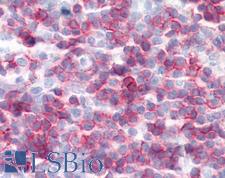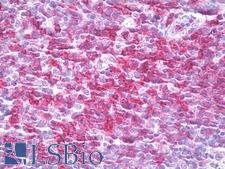Login
Registration enables users to use special features of this website, such as past
order histories, retained contact details for faster checkout, review submissions, and special promotions.
order histories, retained contact details for faster checkout, review submissions, and special promotions.
Forgot password?
Registration enables users to use special features of this website, such as past
order histories, retained contact details for faster checkout, review submissions, and special promotions.
order histories, retained contact details for faster checkout, review submissions, and special promotions.
Quick Order
Products
Antibodies
ELISA and Assay Kits
Research Areas
Infectious Disease
Resources
Purchasing
Reference Material
Contact Us
Location
Corporate Headquarters
Vector Laboratories, Inc.
6737 Mowry Ave
Newark, CA 94560
United States
Telephone Numbers
Customer Service: (800) 227-6666 / (650) 697-3600
Contact Us
Additional Contact Details
Login
Registration enables users to use special features of this website, such as past
order histories, retained contact details for faster checkout, review submissions, and special promotions.
order histories, retained contact details for faster checkout, review submissions, and special promotions.
Forgot password?
Registration enables users to use special features of this website, such as past
order histories, retained contact details for faster checkout, review submissions, and special promotions.
order histories, retained contact details for faster checkout, review submissions, and special promotions.
Quick Order
PathPlusTM CD27 Antibodies
CD27 is a transmembrane phosphoglycoprotein costimulatory receptor belonging to the TNF family, and it is expressed on thymocytes, naïve T cells, B cells, and NK cells. CD27 binds to CD70, which is expressed in response to antigen stimulation. CD27-CD70 signaling leads to activation and differentiation of T cells into both memory and effector cells, and also stimulates B cells. CD27 can also bind to TRAFs 2 and 5 signaling through the NF-kß pathway. It is essential for the generation of T-cell memory, and co-stimulation of CD27 is believed to improve antiviral T-cell immunity. Altering CD27 signaling is thus of interest in various cancer, autoimmune, and viral immunotherapies. In immune checkpoint therapies, CD27 agonists are of interest often in combination with anti-PD-1 or anti-CTLA-4 agents, for example. Identifying CD27-phenotype tumors is important, as cancers that express CD27 have the potential for a more favorable outcome through treatment.
2 PathPlusTM Antibodies


☰ Filters
Products
Antibodies
(2)
Type
Primary
(2)
Target
CD27
(2)
Reactivity
Human
(2)
Mouse
(1)
Application
IHC
(2)
IHC-P
(2)
Flo
(2)
ELISA
(2)
IP
(1)
Host
mouse
(1)
hamster-armenian
(1)
Product Group
PathPlus Other
(2)
Isotype
IgG
(1)
IgG1
(1)
Clonality
monoclonal mc
(2)
Clone
LG.3A10
(1)
M-T271
(1)
Format
Unconjugated
(2)
Publications
No
(2)

CD27 Hamster-Armenian anti-Mouse Monoclonal (LG.3A10) Antibody
Mouse, Human
ELISA, Flo, IHC, IHC-P, IP
Unconjugated
0.05 mg/$460

CD27 Mouse anti-Human Monoclonal (M-T271) Antibody
Human
ELISA, Flo, IHC, IHC-P
Unconjugated
50 µg/$460
Viewing 1-2
of 2
product results










